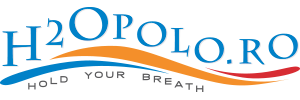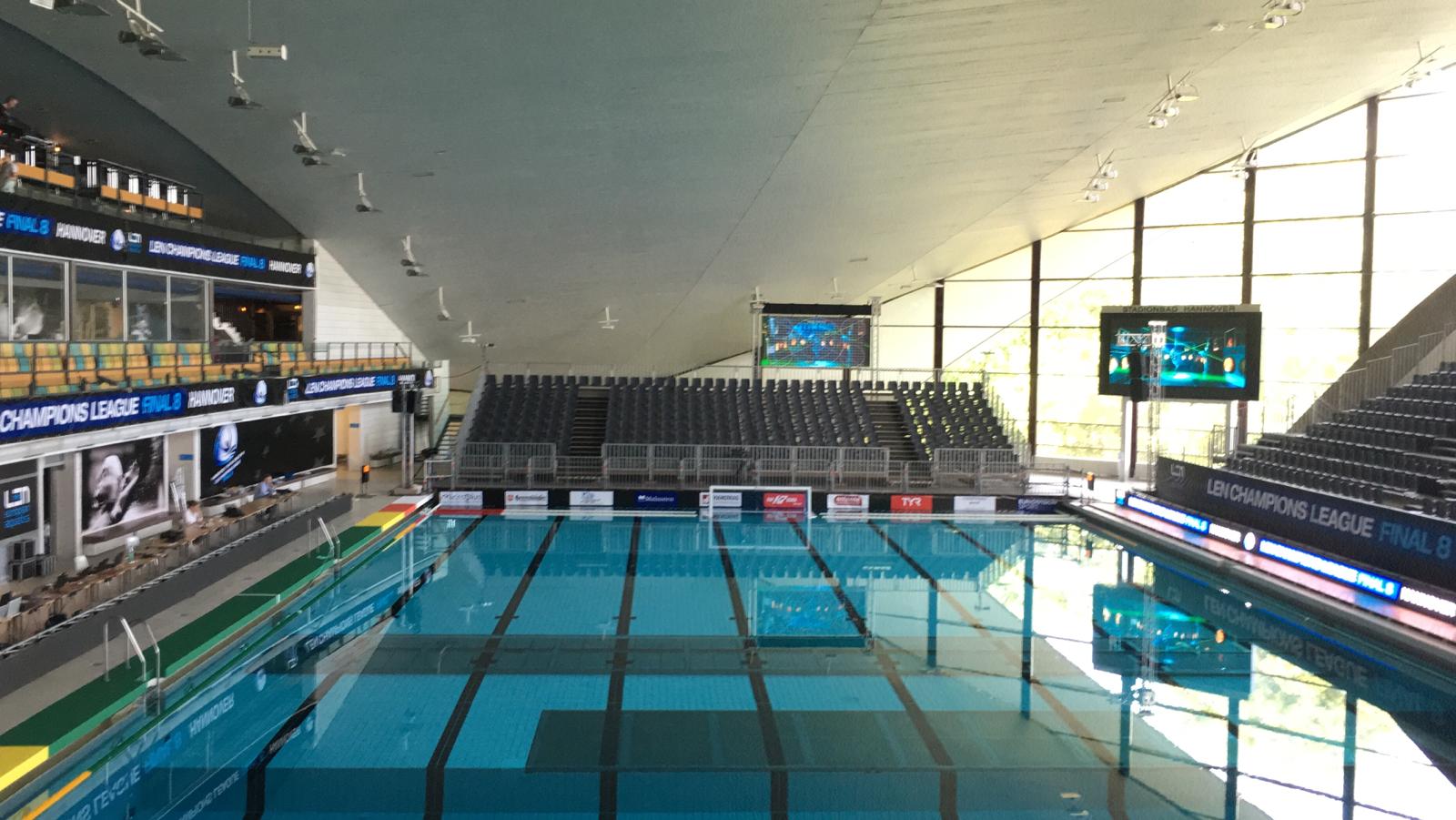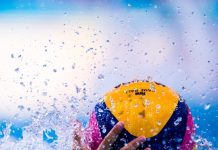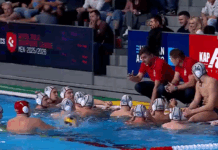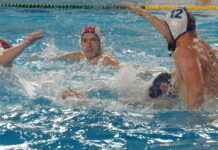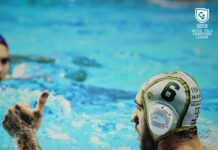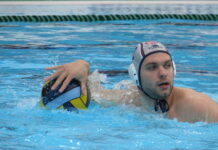Recco is a club of records. By winning in 2015, they grabbed the first place on the
all-time ranks in the Champions League with 8 titles. They also have the most
appearances in the finals, 15 (8-time winner, 7-time runner-up). Recco’s first
triumph came 54 years ago, in 1965, and followed by wins in 1984, 2003, 2007,
2008, 2010, 2012 and 2015. As their website proudly claims: ‘The water polo club
with the most titles’.
This is Recco’s 15th appearance in the Final Eight/Six/Four since 2003 (twice they
didn’t enter the competition), made the last stage more than any other clubs since
the this format was inaugurated in 1997. On the previous 14 occasions they won 6
times, were runners-up 4 times, twice they came 3rd, once 4th and once 6th.
Between 2006 and 2012 Recco reached 7 straight finals, winning 4 and losing 3.
Hannover’s history is definitely briefer: their first two tries in 2014 and 2015
ended in the second round of the qualifications. The next two years they reached
the third round but while Primorje eliminated them in 2016, they ousted Oradea
and qualified for the prelims in 2017 where they finished 6 th . In the past two
seasons they copied this result and came 6 th , though this time in groups of 8.
The two teams met twice in the past, in the 2016/17 season they were in the
same group – Recco won on the opening day of the prelims 18-8 at home and
earned a 10-7 win here in Hannover on the last day in the main round.
Recco’s line-up got some tremendous boost this season. They let Jacopo Alesiani
and Lorenzo Bruni go, and signed Croatian world champions Marko Bijac and Luka
Bukic, Italian national team members Vincenzo Renzuto and Alessandro Velotto,
plus the super-massive Aussie (New Zealand-born) centre-forward Joseph Kayes
and contracted Croatian Olympic champion Niksa Dobud who could join in on Day
12, after his four-year doping ban expired.
Besides the players listed above, Recco can rely the services on Serbian Olympic
champions Filip Filipovic and Dusan Mandic and Montenegrin European champion
Aleksandar Ivovic. Altogether 6 players of their current line-up played for Italy at
the 2018 Europeans and all but one (Dobud) of their foreigners are members of
their countries’ respective national teams.
Of course, the biggest deal of all perhaps was to convince Ratko Rudic to return
to the pool-deck. The Croatian magician is the most successful coach in water polo
history, master of 4 Olympic titles (1984 and 1988 with YUG, 1992 with ITA, 2012
with CRO – plus a bronze with ITA in 1996), he has 3 titles (YUG, 1986 and 1991,
ITA, 1994) and 3 bronzes from World Championships. He was head coach for
Yugoslavia, Italy, USA, Brazil and Croatia – but apart from a short spell in the earlier
phase of his coaching career (1988-1990 with Partizan Belgrade) this is the first
club job for 71-year old maestro in three decades.
Waspo’s line-up did not change that much though its quality improved by the
arrival of Italy’s world champion Alex Giorgetti.
The Italian is a new ‘flavour’ in the international mix: besides some fine German
national team players like Moritz Schenkel, Julian Real, Tobias Preuss (and former
member Erik Bukowski), Waspo features four seasoned Montenegrins: Predrag
Jokic, Darko Brguljan, Aleksandar Radovic (they are world and European silver
medallists) and Luka Sekulic. They have two Croatians, Marin Ban and Ante
Corusic, a Dutchman, Jorn Winkelhorst and a Spaniard Pere Estrany.
Recco is absolutely superior in Italy, they won their 14th consecutive
championship gold (won each year since 2006) and have 33 titles under their belt.
The first came in 1960.
Waspo – founded in 2003 after the fusion of two old clubs of the city – can look
back on 10 titles so far, the first dates back to 1921, while they added the last one
in 2018, halting Spandau’s run and returning to the top after 1993. However, this
season Spandau hit back and reclaimed the title.
In the last five years Recco has been the king of the prelims. They posted three
perfect runs (2015, 2017, 2019) when they won every game in the main round. In
the other two seasons they lost only two matches, both to Szolnok, once in 2016
and once in 2018, and tied one with Jug in 2016. Altogether, during the last five
years they played 58 preliminary matches with 55 wins, 1 draw and 2 losses.
Though in the past three seasons Jug halted their campaign twice in the semis
(2016, 2017), while last year they lost to Olympiacos in the final.
This season Recco seems to be more superior than ever, they posted the best
scoring average in five years by 14.1 goals per game (starting from 2015, their
averages were: 12.9, 13.0, 11.6, 13.3). They had only two games which produced a
gap smaller than four goals (9-8 in Brescia, 9-6 against Ferencvaros at home), and
in nine matches they scored 13 or more.
Waspo had a more modest showing so far. In 2017 they finished their first
campaign without a win, though had 3 draws – including an impressive 15-15
against Jug in Dubrovnik – besides 7 losses. Their first win in the main round came
in 2018 when they beat Brescia on the opening day, this time they finished 6 th (but
among eight teams) with 4 wins and 10 losses. Holding a wild card again, this
current season saw them winning and drawing 3-3 times besides 8 losses and
landing on the 6 th place.
In 2018-19, Waspo opened their quest with back-to-back draws in Zagreb, then
at home against Olympiacos. This was followed by three straight losses to BPM,
Jadran and Jug before they had another surprising draw in Szolnok. In the middle
two rounds they lost to Spandau but hit back to their local arch-rival to gain their
first win on Day 8. On the remaining six days they added two more wins, one over
Jadran and the other over Mladost on the closing day.
Waspo can play in the Final 8 as the host of the event. Since 2014 this is the
second time when the host could join the field only by default (Barceloneta came
from the 4 th place to the F6 in 2015) – in the other four seasons the respective
hosts made the cut by virtue of their rankings (Barceloneta in 2014, Szolnok in
2016 and 2017, Recco in 2018).
Recco scored the most goals, 197 and conceded the least, 91 (only Olympiacos
managed to stay also under 100).
Hannover netted 130 goals, placing them 11 th in the overall ranks in the prelims.
They conceded 169, only Eger and Zvezda in the other group got more.
Scorers for the teams – Recco
Aleksandar Ivovic 29
Joseph Kayes 29
Filip Filipovic 25
Dusan Mandic 22
Francesco Di Fulvio 21
Matteo Aicardi 17
Gonzalo Echenique 14
Alessandro Velotto 8
Guillermo Molina 7
Luka Bukic 7
Niccolo' Figari 5
Niksa Dobud 4
Michael Bodegas 4
Vincenzo Renzuto 3
Luca Cupido 2
Scorers for Hannover
Aleksandar Radovic 30
Darko Brguljan 25
Alex Georgetti 16
Julian Real 12
Ante Corusic 11
Jorn Winkelhorst 9
Luka Sekulic 7
Pere Estrany 5
Predag Jokic 4
Tobias Preuss 4
Marin Ban 3
Erik Bukowski 2
Reiko Zech 1
Fynn Schuetze 1
